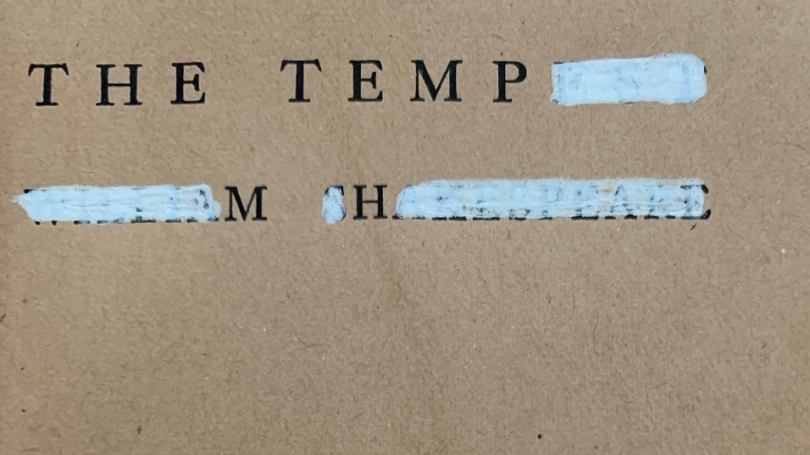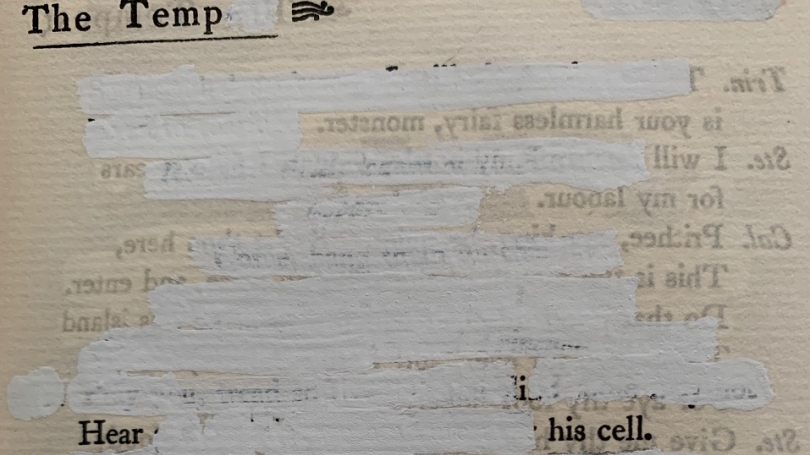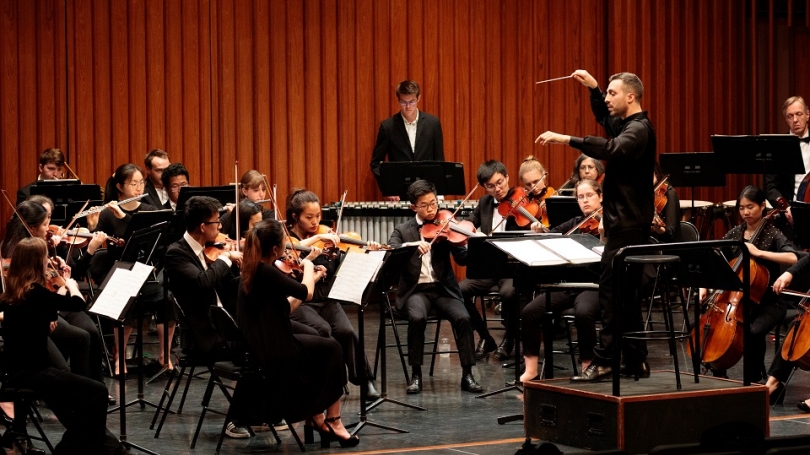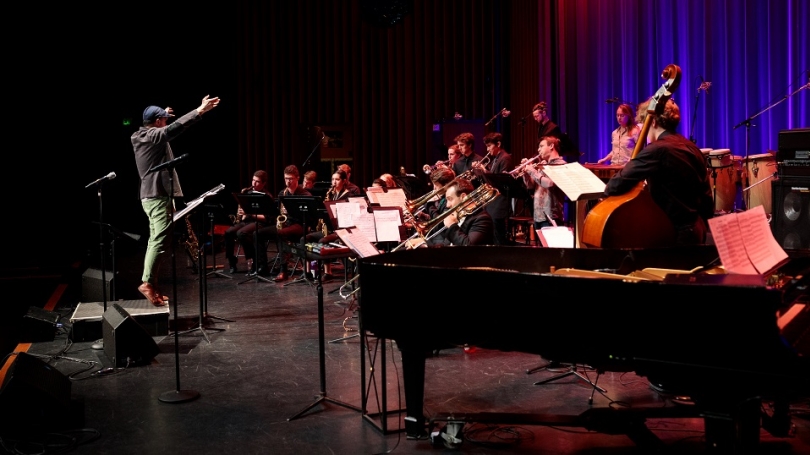A 'Tempest' transformed: the DSO and Coast unveil a new Dartmouth-created opera
On February 21 and 22, Shakespeare's "Tempest" morphs into a witty, uplifting opera about contemporary labor relations, with music by Dartmouth's Taylor Ho Bynum—performed by Dartmouth's Coast Jazz Orchestra and Symphony in their first-ever joint concert.
Shakespeare's play The Tempest concerns an exiled ruler-turned-sorcerer, shipwrecks, a remote island and forbidden love.
Who knew that lurking inside it was the tale of a downtrodden office worker and an overbearing boss?
Such is the plot of The Temp and Mr. Prosper, a new opera composed by Taylor Ho Bynum, director of Dartmouth's Coast Jazz Orchestra. The opera's libretto is the work of Brooklyn-based writer Matthea Harvey, author of five books of poetry and two children's books. Deciding Bynum should compose something for the Coast and the Dartmouth Symphony Orchestra to play together, Bynum and DSO Director Filippo Ciabatti asked Harvey to reimagine The Tempest—"Shakespeare's hippy-est play," Bynum quipped.
In their first-ever joint performance, the Coast and DSO will unveil the work in concerts on Friday and Saturday, February 21 and 22, at Dartmouth's Hopkins Center for the Arts. Each night, the work is paired with a different Shakespeare-related work—on Friday, with Prokofiev's Romeo and Juliet Suite played by the DSO and on Saturday with the Coast's rendition of Duke Ellington/Billy Strayhorn's Bard-based Such Sweet Thunder Suite, composed in 1956 for the then-new Stratford Shakespeare Festival.
Harvey created the libretto through an "erasure" process, whereby she whited out the words on the page until a new story emerged. Once the idea of "the Temp" occurred to her (as a self-employed writer, she's had many rotten temp jobs in her life, she said), the new story began to crystallize.
"A lot of language in the play about commerce and work and ambition and power suddenly stood out to me," said Harvey. The play's frequent mention of "Prospero's cell"—his monkish dwelling—became "Mr. Prosper's cell" (phone). In the original play, Ariel and Caliban are both slaves of Prospero, so there was plenty of language of domination and hierarchy to for her to draw on. Along with the two main characters, the libretto includes a chorus of other temp workers.
The project then passed to Bynum. "As soon as I read her libretto I started hearing those voices and how we could make this story work," he said. He has written for singers before, setting texts by Joseph Conrad, Herman Melville, David Mitchell and his sister, novelist Sarah Shun-lien Bynum.
Bynum wanted to make sure the work called on the Coast and DSO to truly play as one. "This project challenges each of our ensembles to think past what they usually do," he said. "The DSO has never been asked to improvise. The Coast hasn't taken on this level of complex written notation before. So for both of them it's a wonderful challenge."
Adds Ciabatti, "When we work we want always to learn—from our students, from other professionals, from performance. It's very beautiful when you can say, I know I'm going to walk into this experience one way and really be changed by it, really learn something."
Along with the two main characters, which will be sung by guest vocalists Michael Mayo and Kyoko Kitamura, the libretto includes a chorus of other temp workers, which will be sung by Dartmouth singers. Other guest artists are Jim Hobbs (alto saxophone), Bill Lowe (bass trombone), and Tomas Fujiwara (drums). Bynum and DSO Conductor Filippo Ciabatti will share the conducting duties.
While Bynum has worked on the opera, his star as a composer and bandleader has continued to rise. His August 2019 album Ambiguity Manifesto was heralded by critics including for NPR and the Wall Street Journal, which called it "brilliant, oddball ... full of memorable scenes … with strands of gorgeous melody." NPR Music even included the album on its Best Jazz Albums of 2019 list.
Says Ciabatti, "Taylor is able to write cultured, intellectual music that has roots not only in American music but also in contemporary concert music, and which uses the language of jazz improvisation in the most genuine, profoundly American way. His work deeply represents the work we want to do in putting two ensembles together, granting each ensemble its own identity, but challenging them to look forward."



